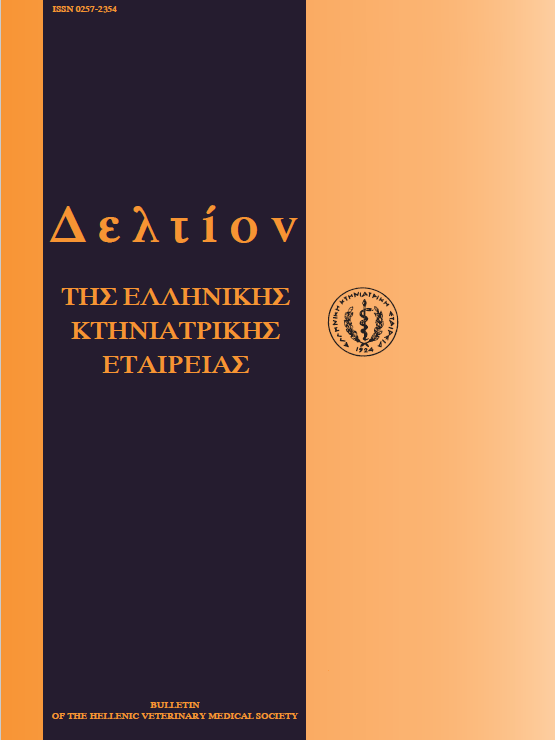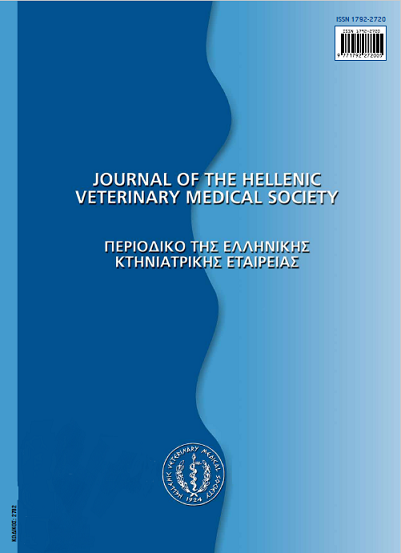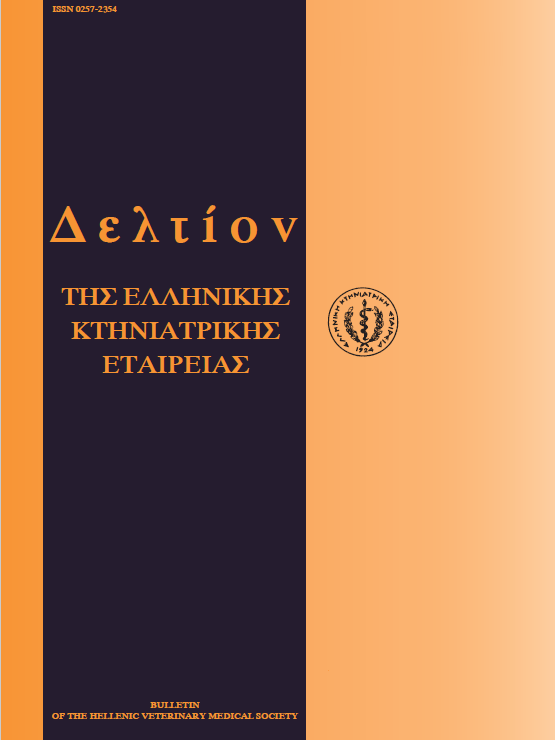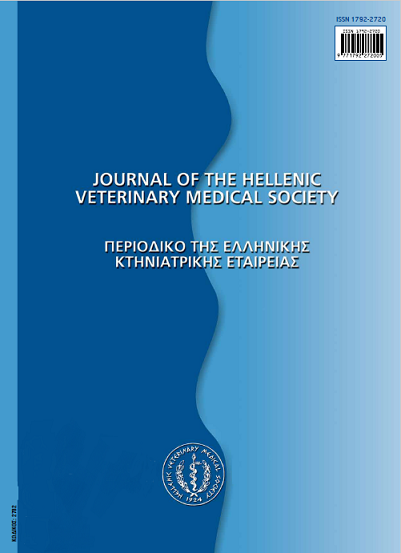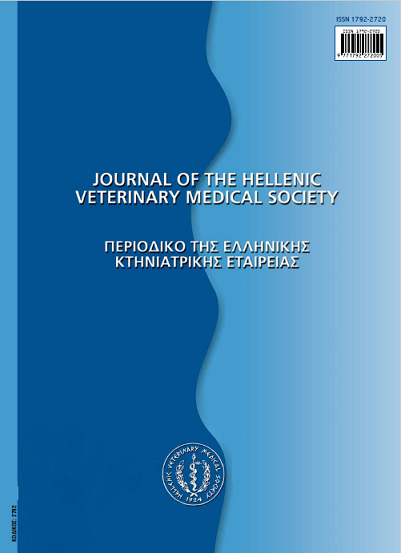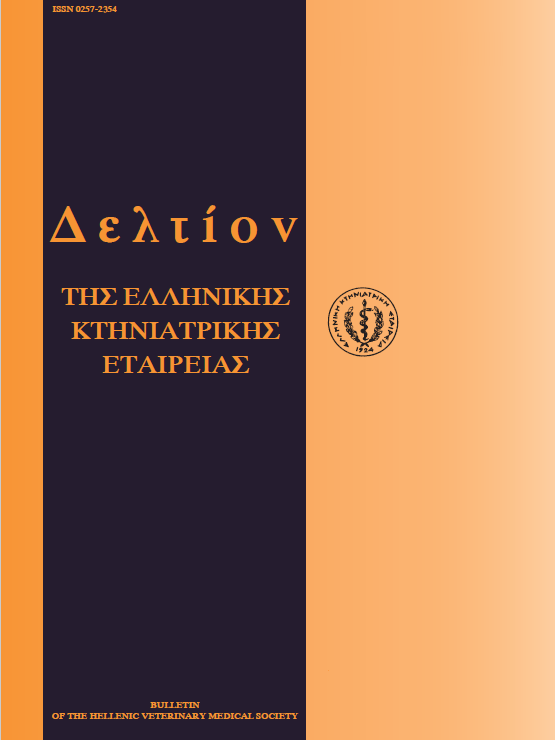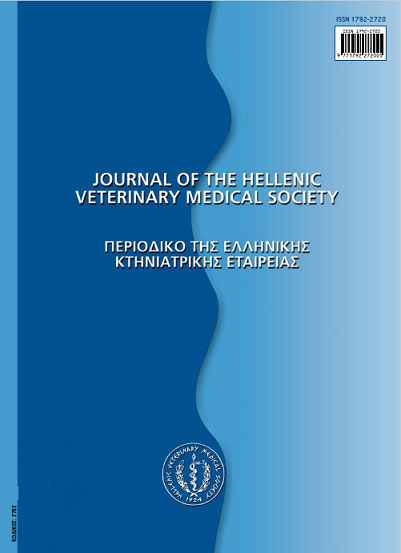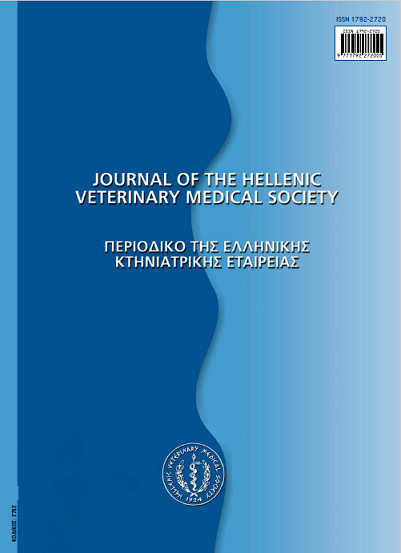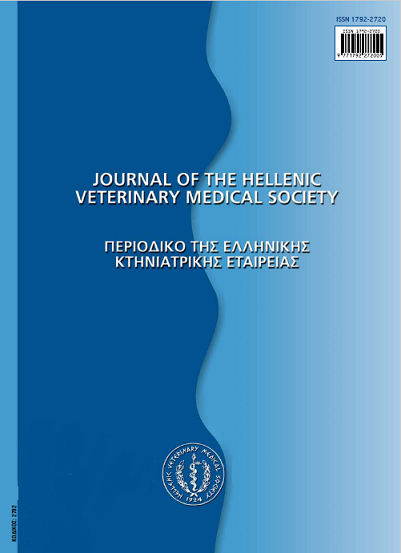Canine demodicosis
Abstract
Canine demodicosis, which is caused by the follicular mite Demodex canis, is one of the most common skin diseases, especially in the young dog. Demodicosis can be localized or generalized; in the latter a parasite-specific cellular immunosuppression, which is genetically transmitted, is the cornerstone of its pathogenesis. Alopecia - hypotrichosis, erythema, hyperpigmentation, lichenification, papules, scales and crusts, first appear on the face and front limbs, to spread eventually to the other parts of the body. Superficial or deep staphylococcal pyoderma is a common complication, especially in the generalized form of the disease. Diagnosis will be confirmed by the presence of the mite in high numbers and at various developing stages in the skin scrapings. Treatment is not recommended for the localized form, which is almost always self-limiting. Various ectoparasiticides have been used in the generalized form of the disease, either for topical (amitraz) or systemic application (ivermectin, mylbemycin, moxidectin), with good results. Treatment is terminated when not a single parasite can be found in the skin scrapings on 2-3 consecutive monthly re-examinations. The animal is considered cured if there have not been any relapses one year since the end of the acaricidal treatment.
Article Details
- Zitationsvorschlag
-
KOUTINAS (Α.Φ. ΚΟΥΤΙΝΑΣ) A. F., SARIDOMICHELAKIS (Μ.Ν. ΣΑΡΙΔΟΜΙΧΕΛΑΚΗΣ) M. N., & KOUTINAS (X.Κ. ΚΟΥΤΙΝΑΣ) C. K. (2018). Canine demodicosis. Journal of the Hellenic Veterinary Medical Society, 52(3), 187–197. https://doi.org/10.12681/jhvms.15424
- Ausgabe
- Bd. 52 Nr. 3 (2001)
- Rubrik
- Review Articles

Dieses Werk steht unter der Lizenz Creative Commons Namensnennung - Nicht-kommerziell 4.0 International.
Authors who publish with this journal agree to the following terms:
· Authors retain copyright and grant the journal right of first publication with the work simultaneously licensed under a Creative Commons Attribution Non-Commercial License that allows others to share the work with an acknowledgement of the work's authorship and initial publication in this journal.
· Authors are able to enter into separate, additional contractual arrangements for the non-exclusive distribution of the journal's published version of the work (e.g. post it to an institutional repository or publish it in a book), with an acknowledgement of its initial publication in this journal.
· Authors are permitted and encouraged to post their work online (preferably in institutional repositories or on their website) prior to and during the submission process, as it can lead to productive exchanges, as well as earlier and greater citation of published work.

